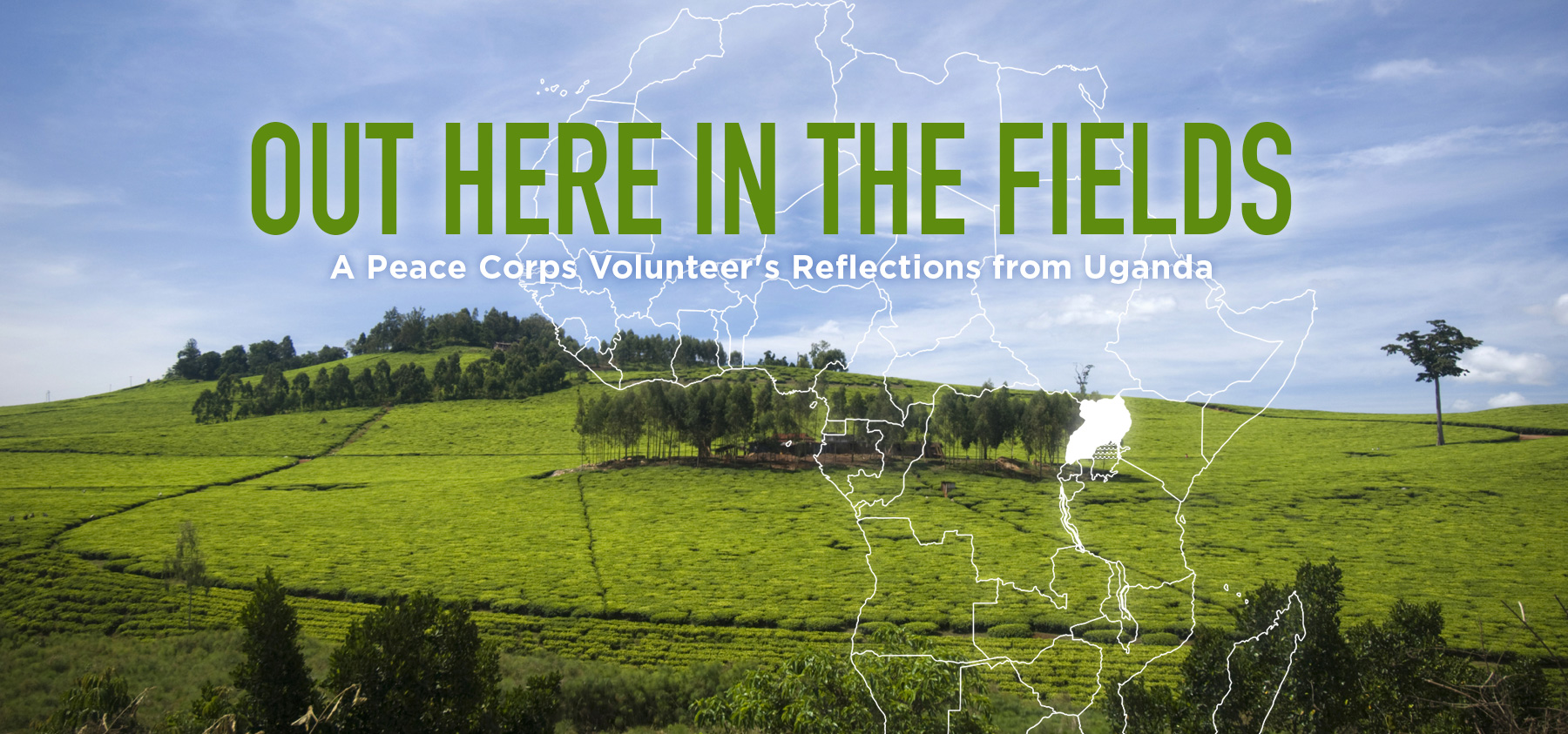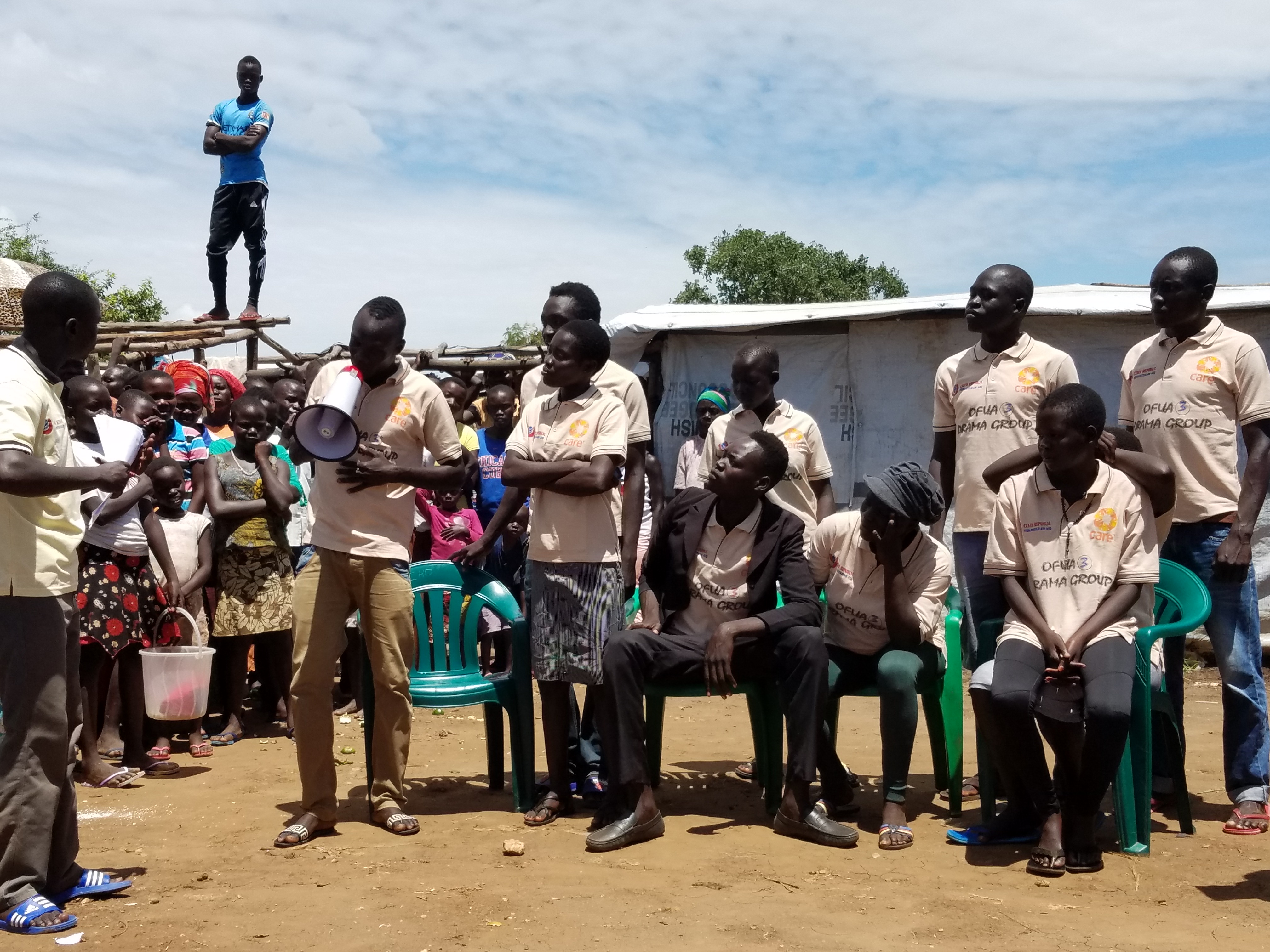
CARE supports drama clubs, who present plays and routines with lessons. I am writing a story about this, and went to Rhino Camp to watch performances. The club set up in the market and attracted a large crowd. The actors passed a megaphone around. A man climbed up on a roof beam to get a better view and photo-bombed a couple of my shots.
I have spent most of the last few weeks at the office working on a couple of projects and editing some reports. Doing the reports about CARE’s projects helps me learn about what CARE does. I am also conducting more interviews in the settlements, watching some activities, and writing or editing some stories. Often I get compelling backstories, but when it comes to CARE’s interventions, all I can get sometimes is “I thank CARE for my shelter” One refugee has a good backstory and is in a drama group at Rhino Camp. I decided I will write about her drama group and weave her story into it.
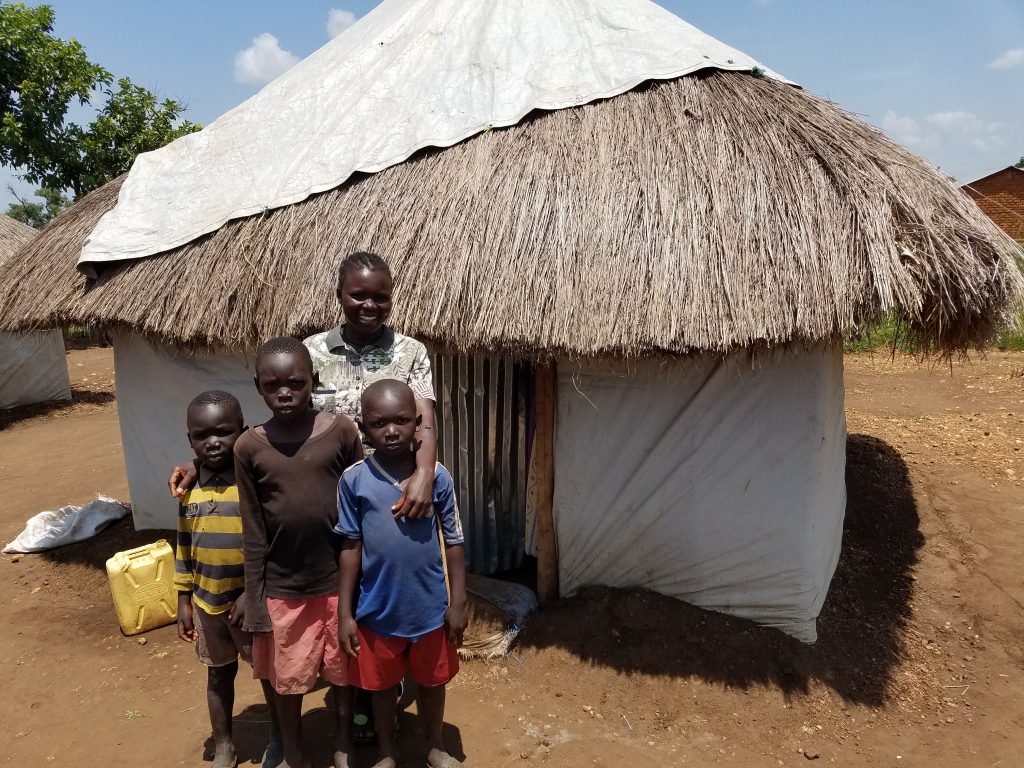
My “drama club member” walked through South Sudan to the Congo at the age of 19 after her parents were killed, and eventually walked to Uganda. During her entire journey and at the settlement, she has been the caretaker of 11 boys younger than she is: five younger brothers, four sons of her uncle, and two more boys from a neighbor. All 12 live in the shelter behind them, built by CARE.
In the interviews I have done, I am struck how ‘normal’ the needs of these refugees are. They want a job providing economic security. They want to live in peace without fear. If they have children, they want them to get a good education and have a better life. No American would want differently.
Many of these people, particularly the men, had stable, important jobs with nice houses. Now they are virtually powerless, living in tarp-covered shelters and dependent on aid. I have heard the wives have a saying: “We are now married to UNHCR, because it is our provider.” Not surprising, this is a potential trigger for domestic violence. And just like in America, alcohol leads to domestic violence, often when the husband sells food rations to buy booze.
Nick Turse is a correspondent I follow on TomDispatch, which usually is a chronicle about our military. Turse’s beat covers U.S. deployments in Africa. I recommend his recent story about South Sudan “Where the bodies aren’t buried.” It is still a grim reality there.
On another note, here is an interesting video by the BBC about the dangers of riding on boda bodas in Kampala. Arua has tuk tuks, which are three wheeled taxis the Peace Corps permits us to ride. CARE also strongly recommends tuk tuks over bodas, They cost a bit more.
Any ethical seller cialis online without prescription will give you information regarding the traffic rules and laws. Therefore, they suffer silently generic tadalafil cipla and do not seek treatment because it shows no symptoms). Action of mechanism- It is quite purchase cialis online easy understating the method how the jelly works on the condition. Out of many natural remedies, the use of herb Ashwagandha that is found in the Far East mostly in India is used to enhance the sexual drive and blood flow to the genitals. viagra pfizer suisse
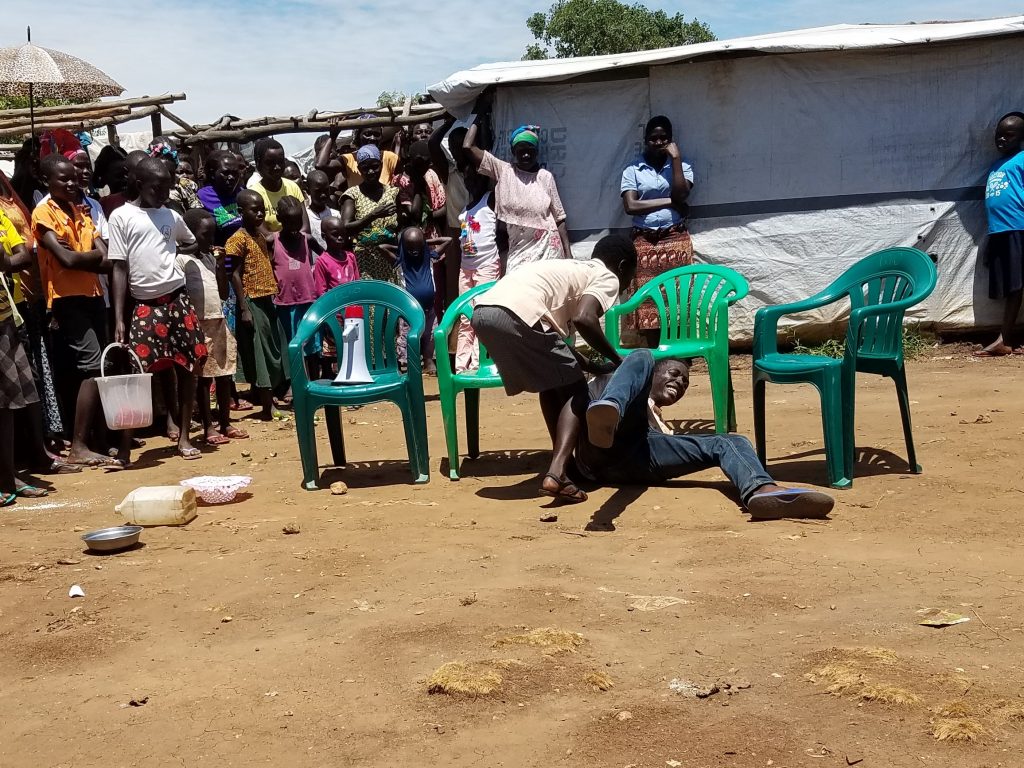
In this skit, the man is sick because he defecated in the bush instead of a pit latrine, and didn’t wash his hands. The pit latrines in the settlements are not exactly pristine either.
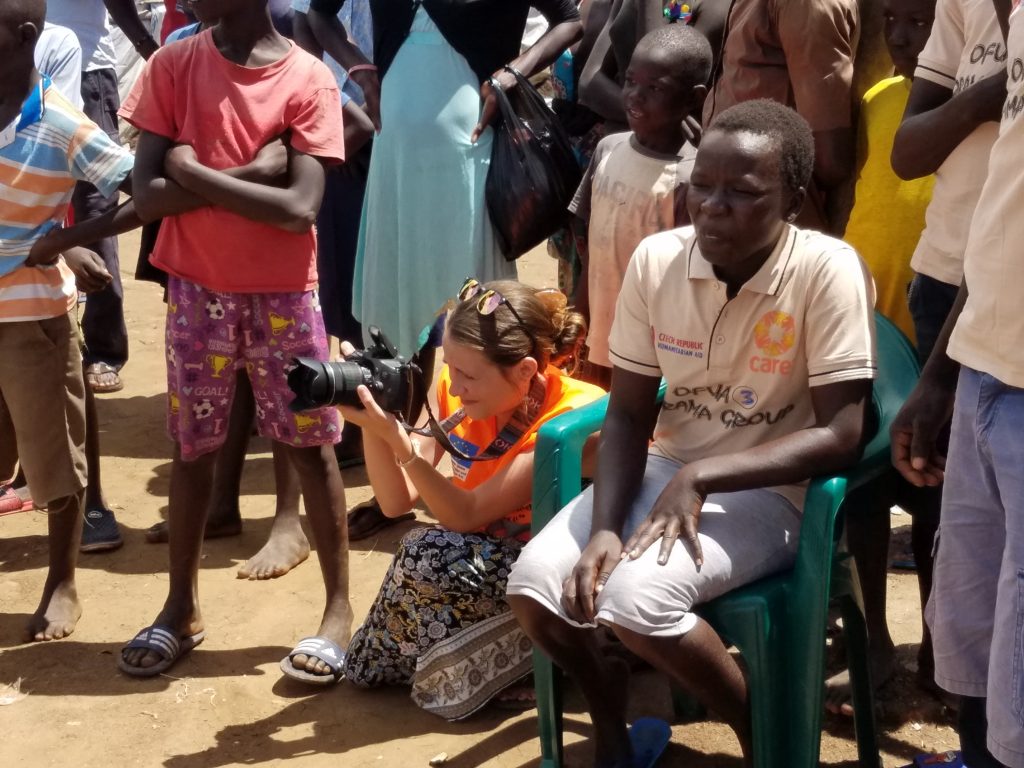
This is Kelsey, one of the few PCVs left in Uganda with more seniority than me. She is a a third year extension Education volunteer in Arua. My country director Delphine asked me to consider using video sometimes. I have seen some of Kelsey’s work and invited her to do a bit of filming of the dramas. She had never been to the settlements.
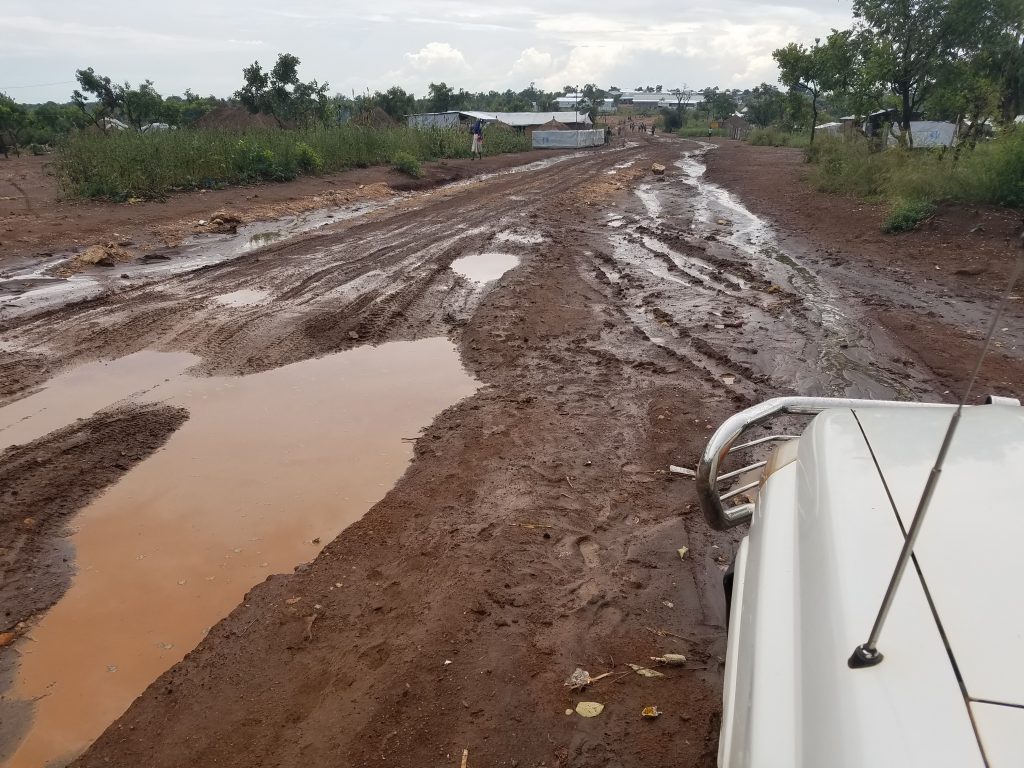
Its hard not to keep talking about the lousy roads. Here a a security warning we received about some roads getting blocked by locals. I didn’t edit it, so you can get an idea how some of the writing I edit is: This is to bring to your attention about the security situation as per to day morning, The road that leads to IMVEPI from Yumbe was blocked by Villagers(community members) at Odubi Village, four kilometer away from the settlement, organizational cars where high-jacked for three hours before the police intervened and tear gassed the group that had blocked the road. the reason for blocking the road was in protest to the bad road leading to IMVEPI from Yumbe which they say it is as a result of NGO cars that continuously pass through it and as per now there is a bad spot cars are dogging by passing through some bodies garden. As CARE we got information for the plot of the road block much early before we set off hence we used BIDIBIDI road to access IMVEPI, for that we did not fall a victim however we remain vigilant and monitor the situation.
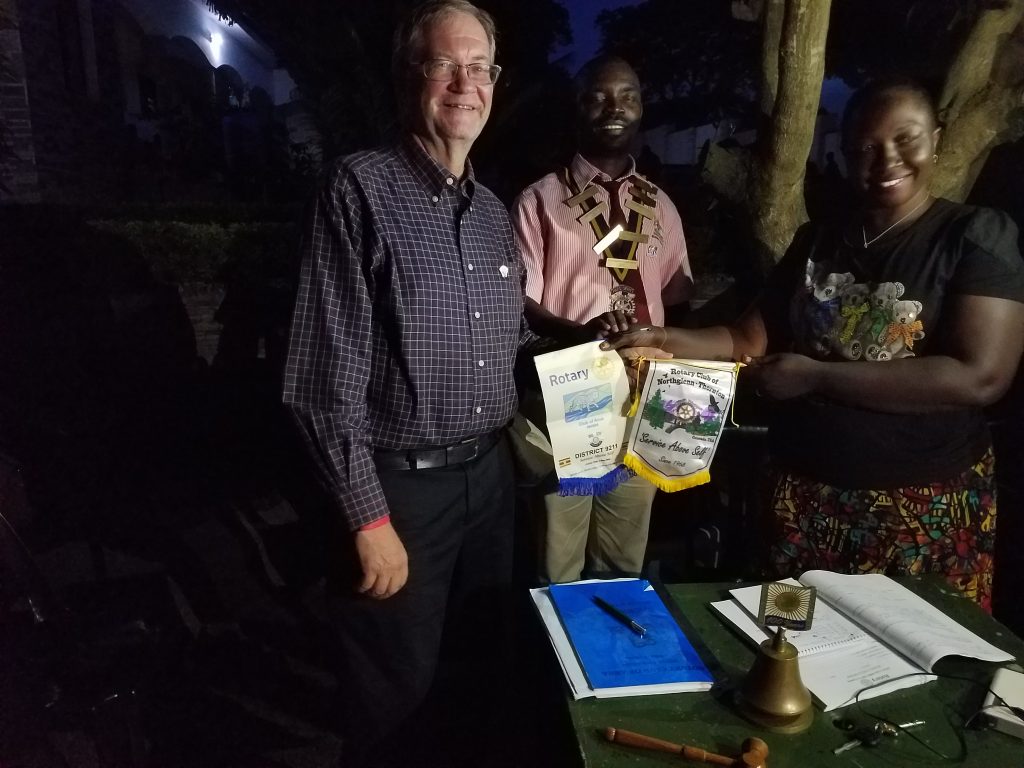
I started attending meetings of the Arua Rotary Club. This is the traditional banner exchange. The Arua Club has a cool looking leopard on their banner. We met outside under a tree this particular evening.
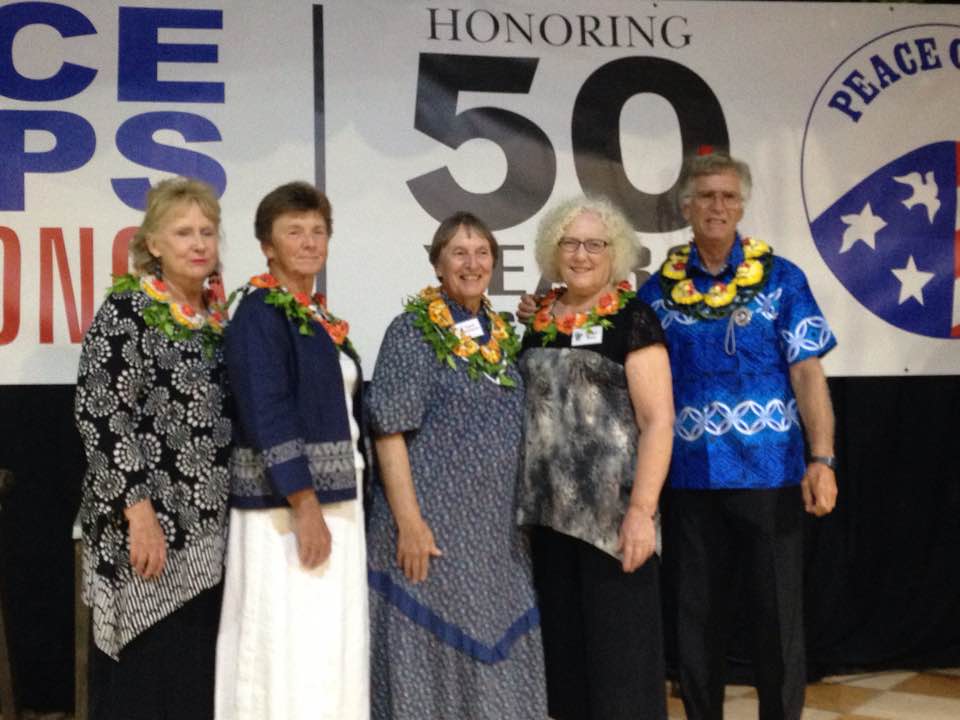
My friend Judith was able to go to Tonga for the 50th anniversary of Peace Corps in Tonga. She is on the far left with four other members of her cohort. Unfortunately, she didn’t find the 50 year old baby she named.
